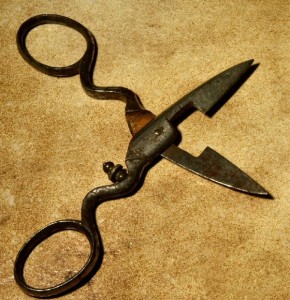One mistake aspiring novelists and memoir writers often make is disregarding the importance of word count. Unreasonable though it may seem, there’s an expected, established word count for a novel or memoir, especially for first-time authors. If you don’t color within the lines when it comes to the length of your manuscript, most agents will write you off as an amateur without even bothering to fully read your query letter.
So how long should a novel be, or a memoir? Let me give you the lowdown on word count, with the recommended numbers for the various story genres. But first lets talk about why word count, to agents, matters so much. They know from experience that different genres require a certain number of words to get the story across. They also know that 95% of the query letters they get are from amateur writers with manuscripts that don’t come close to the standards required for professional publication. They get hundreds of these weekly, and reading queries takes time, so they want to quickly weed out the writers who don’t know what they’re doing and focus on finding that needle in the haystack that is the qualified fiction writer.
 For that reason, they jump on anything in a query letter that indicates the author is an amateur who would only be wasting their time. Most queries get looked at for twenty seconds before they are passed on, agents say. So not only does your query have to be great, and succinct, and hit on all the points they expect it to address, including the book’s word count—but that word count must also fall within the numbers they consider proper for that genre.
For that reason, they jump on anything in a query letter that indicates the author is an amateur who would only be wasting their time. Most queries get looked at for twenty seconds before they are passed on, agents say. So not only does your query have to be great, and succinct, and hit on all the points they expect it to address, including the book’s word count—but that word count must also fall within the numbers they consider proper for that genre.
Meeting the Standard
Established authors, who have traditionally published a few successful novels, are given leeway on word count. They have already proven themselves, so if their novel submission is longer than the average, agents assume that’s because the story required more words for the telling. But when first-time authors write a longer-than-normal story, agents make a very different assumption. They presume the manuscript’s long because the writer is a beginner who doesn’t know how to delete the superfluous from their own material, whether that’s word-bloated sentences or rambling, irrelevant paragraphs and chapters.
Good writing is tight writing (as you’ve heard a thousand times), and nowhere is that maxim more strenuously applied than in agents’ offices where decisions are made about whether to request authors’ manuscripts. They assume—rightly or wrongly—that if a new writer can’t stay within the prescribed word count, their writing will not be up to the mark.
Most of the time, that assumption is correct. I say that based on my experience as a book editor. New writers often send me manuscripts that go way over the prescribed word count for their genre, and the author always claims it’s because that many words were necessary to effectively tell their story. Yet in every case, when I read the manuscript, I find either those word-bloated sentences or those rambling, irrelevant paragraphs and chapters. I have yet to receive an oversized novel that genuinely required all the extra pages the author assigned it!
 So whittle your manuscript down to the expected word count. Try to do this before you send your book to an editor, or you will end up paying hundreds of dollars more than you otherwise would (because an oversized manuscript takes lots longer to edit or critique). If you honestly don’t know what should be cut, turn in the oversized manuscript and let the editor explain it to you. But most writers know in their gut what needs to be tossed—they just don’t trust their instincts, or just don’t want to make the deletions.
So whittle your manuscript down to the expected word count. Try to do this before you send your book to an editor, or you will end up paying hundreds of dollars more than you otherwise would (because an oversized manuscript takes lots longer to edit or critique). If you honestly don’t know what should be cut, turn in the oversized manuscript and let the editor explain it to you. But most writers know in their gut what needs to be tossed—they just don’t trust their instincts, or just don’t want to make the deletions.
Crunching the Numbers
So now let’s look at the numbers. For most story genres, the expected word count is 80,000 to 100,000. (If you don’t know your word count, you can find it in the lower-left corner of any page of your manuscript, if you typed it in Microsoft Word.) Here is what agents consider acceptable word counts, genre-by-genre:
Epics: 110,000 and up
Fantasy: 100,000 – 150,000
Historical Fiction: 100,000 – 150,000
Horror: 80,000 – 90,000
Literary Fiction: 80,000 – 100,000
Memoir: 70,000 – 90,000
Middle Grade: 20,000 – 55,000
Mystery: 80,000 – 90,000
Picture Books: 500 – 600
Romance: 65,000 – 80,000
Sci-Fi: 100,000 – 150,000
Thrillers: 80,000 – 100,000
True Crime: 80,000 – 100,000
Westerns: 50,000 – 80,000
Women’s Fiction: 80,000 – 100,000
Young Adult Fiction: 55,000 – 80,000
(Note: If you write self-help books, spiritual books, or any nonfiction genre other than memoir, you don’t have to worry too much about word count. Just make it something reasonable. No one is going to buy a five-hundred-page self-help book. To determine how many standard-sized book pages your typed pages will fill, figure that 30,000 words of type equals about 100 print pages.)
Now you know the standard word counts for all the different genres, and why the standards are there. It’s hard enough to get an agent’s attention, so why make it harder for yourself by offering them a manuscript they will almost surely ignore because they will assume it’s overwritten? Be that needle they’re looking for in the haystack, and you’ll have much better luck!

Jessi Rita Hoffman … book editing by an industry professional
